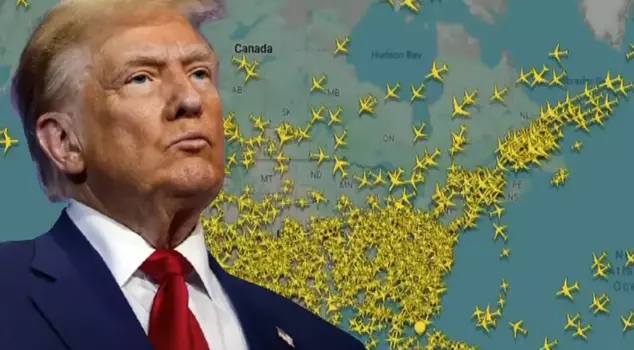
04.11.2025 22:12
Due to the government shutdown in the U.S., the aviation sector has been affected. The airspace was on the verge of closing due to airport controllers not showing up for work. As thousands of planes circled in U.S. airspace, the congestion was reflected in radar images. The U.S. Secretary of Transportation announced that if the government remains shut down next week, some regions of the country will have to close their airspace.
The United States is experiencing the largest government crisis in its history. In a country where the government is shut down, employees who are not receiving their salaries are beginning to go on strike, with the aviation sector expected to suffer the most.
FACING THE DANGER OF CLOSING U.S. AIRSPACE
U.S. Secretary of Defense Sean Duffy has made a statement regarding the current situation. Duffy stated that if the government shutdown continues into next week, the Department of Transportation may have to close airspace in certain regions of the country. Duffy noted that there is insufficient air traffic control.
80% OF EMPLOYEES DID NOT GO TO WORK
In the U.S., 80% of air traffic controllers did not go to work on Friday. It has been reported that more than 13,000 employees are working without receiving their salaries.
THE FEDERAL GOVERNMENT IN THE U.S. HAS BEEN SHUT DOWN SINCE OCTOBER 1
The federal government in the U.S. has been shut down since October 1 due to the inability of Republicans and Democrats to reach an agreement on the budget and Congress's failure to approve a temporary budget proposal before the new fiscal year begins. According to American law, if Congress cannot approve the budget for the fiscal year that starts on October 1 and ends on September 30, the gap must be filled with temporary budgets.
During periods when the temporary budget is also not approved, the federal government loses its spending authority and halts all activities except for essential services.
During this process, public employees working in "non-essential" services are placed on unpaid leave, while personnel in the U.S. military, intelligence agencies, public hospitals, airports, and prisons continue to work. These employees typically do not receive their salaries during shutdown periods until Congress passes a new budget.